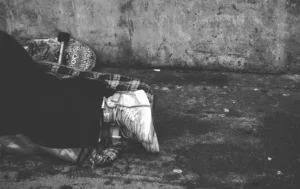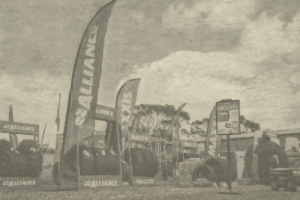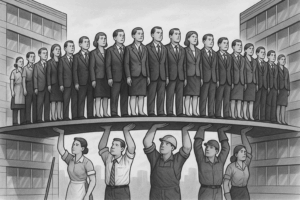I’m yet to officially started a career in anthropology, but in many ways, I’ve been doing it all along. I started in advertising—longer ago than I want to admit—when briefs were printed, personas were invented from scratch, and research meant observing focus groups from behind a one-way mirror. And yet, somehow, I was already doing anthropology. I just didn’t know it. In recent years, I formalised it. I returned to university, studied, read (x1000), and wrote. I graduated with a BA and then Honours in anthropology. I saw the threads tying everything together—culture, power, capital, meaning, habit, and resistance. The discipline gave me language for what I’d always felt but couldn’t quite name. And for a while, that felt like progress.
But now? Now I’m not so sure. I’m stuck.
I’m not doing anthropology—not in the way I want to. I do strategy. I write briefs. I manage campaigns. And yes, I bring anthropology to all of it. I read the subtext; I notice rituals and think in systems. But most of the time, that work gets stripped down and flattened into notes and insights. The discipline I love gets reduced to something that “adds flavour” to marketing, but not substance. Anthropology is interesting to people—right up until it complicates their certainty. That’s often where the debates begin.
What’s worse, I don’t quite belong anywhere. To my academic peers, I’m not an anthropologist—I haven’t published (yet), I work in industry, and I don’t live in the journals. Even though I always carry one. To my colleagues, I’m the one who thinks too deeply, asks too many questions, and takes too long to answer a brief. I’m always translating, always toning it down. And now, I’m about to start a Master’s. Eventually, a PhD. It should be exciting. But all I feel is a creeping dread. If I’m frustrated now, what happens when I know more? When does the gap between what anthropology can do and what I’m allowed to do with it grow even wider?
I don’t need anthropology to be everything. But I want to do more with it. I want it to matter beyond academia. I want it to sit at the table—not in the corner of the slide deck marked “insights.” I want to stop feeling like I’m smuggling it into conversations under the radar.
And honestly? I want to stop apologising for wanting more (whatever that is).
I’m not alone in this. I’ve read and spoken with others—those in media companies, user researchers on energy projects, heritage consultants—who all describe the same uneasy feeling: of living anthropologically but never being recognised as anthropologists. Some left academia after hitting walls; others never entered it because the path was too narrow or precarious. They, too, talk of translation, dilution, and a longing to bring the full weight of the discipline into spaces that often only want the thinnest slice of its insight. Knowing that many of us navigate this liminal professional identity together is comforting and frustrating.
For the most part, disciplinary associations have failed to keep pace with the evolving lives of those who study anthropology. It is a life long subject. That is my opinion from where I observe. They remain tethered to the academic model—concerned primarily with tenure, publications, and conferences—rather than cultivating the broader relevance of the discipline. There is little effort to build bridges between academic anthropology and its many practical, often unrecognised, expressions in industry, community work, design, policy, and advocacy. If this doesn’t shift—if the discipline continues to guard its gate rather than open new ones—it risks irrelevance. Not because anthropology lacks value, but because it refuses to adapt to where its thinkers have gone.
Another frustration in how some co-opt the name—using “anthropology” as a trendy label to imply depth or cultural insight—without engaging with its essence. You see it in brand consultancies, design agencies, and leadership seminars. Anthropology becomes a buzzword, a veneer of credibility, something to sprinkle into a pitch deck. But they don’t apply its methods, grapple with its ethics, or acknowledge its roots. It’s anthropology without some form of fieldwork, without reflexivity, without humility. And that, too, is frustrating—to watch a discipline that changed your life get reduced to a gimmick.
In Australia, anthropology outside of academia often feels boxed in, limited primarily to roles in First Nations communities or the expanding field of heritage advisory. Often for white colonialist purposes. These are deeply important areas, yet structurally narrow in scope and often geographically remote. These opportunties often require you to relocate to regional or isolated parts of the country for extended periods. For some, that’s a calling. For others, like me, it’s a conflict. I would love nothing more than to immerse myself in that work, but I also have a family, a mortgage, and a community I’m part of. The reality of everyday middle-aged life complicates the romantic ideal of remote long term fieldwork. And yet again, the discipline feels like it is just out of reach—present, but impractical.
So, I must confess: I’m frustrated with the world around me and myself. I’m angry that I didn’t find anthropology sooner, that I didn’t see it clearly within the work I was already doing. I think about the years I spent circling its edges without knowing the language, the theory, the method—and I wonder how different my career and contributions might have been if I’d taken the plunge earlier. But self-flagellation only goes so far. What matters now is where I go from here. I’m still driven, still curious, still committed. I know doors exist, alliances to build, and new forms to create. The challenge ahead is to channel that frustration into something generative—to do the work, however imperfect the setting, and to do it with intent, curiosity, and care. Even if anthropology hasn’t found a place for me, it has given me a compass.



